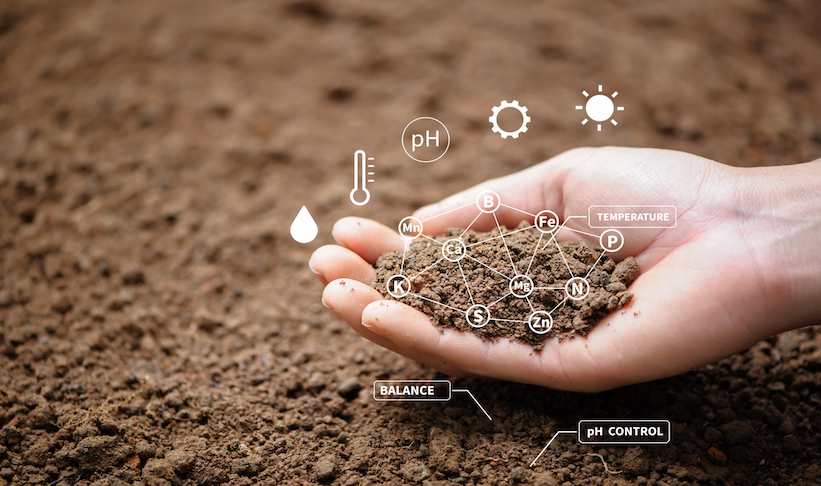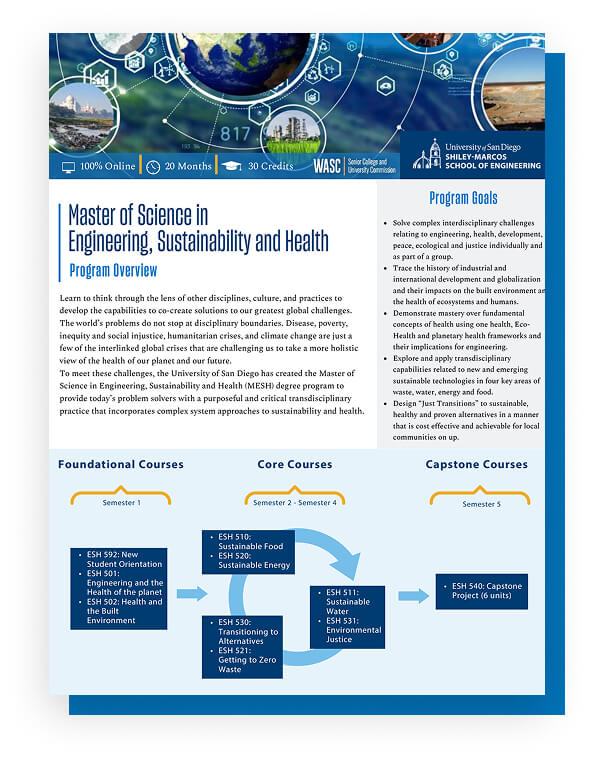Today’s environmental challenges are complex and interconnected, affected by issues even beyond the traditional understanding of environmentalism. Businesses, governments and educational institutions know that they must act quickly to slow or halt the global effects of climate change, poverty, inequity and social injustice; they also know that guidance must come from experts across multiple disciplines who can recommend responsible actions.
The fields of environmental science and environmental studies are themselves interdisciplinary; both are dedicated to the study of global sustainability issues with the aim of identifying feasible solutions. Career opportunities in each field are growing very quickly, especially for professionals and recent graduates who hold advanced degrees.
However, it must be understood that these paths follow two different courses of study; choosing between a master’s in environmental science or environmental studies depends on your own interests, experience, career goals and passions. In this article, we cover the essentials of what you need to know about both degrees, as well as possible career paths to consider.
Environmental Studies vs. Environmental Science
As the names imply, these fields take differing approaches to studying the natural world. While both involve different academic disciplines, one is perhaps better suited to those with more of a technical interest in environmental issues. The common through-line for both fields, besides the natural world, is an interdisciplinary approach to critical analysis and problem-solving.
Environmental Studies
An environmental studies program, while rooted in earth sciences, contains strong elements of the humanities. A Bachelor or Master of Arts (B.A. or M.A.) in Environmental Studies is designed for those who have an interest in the policy and management aspects of environmental and sustainability issues. Coursework may cover the fundamentals of environmental science, but also examine environmentalism and sustainability through a social, economic, political, interpretive and historical lens. Students may choose to focus specifically on one of these facets, such as policy, law or the intersection of social and environmental justice and advocacy.
Environmental Sciences
This type of program is designed for those interested in the more technical and scientific elements of environmental issues. Students can earn a Bachelor or Master of Science (B.S. or M.S.) and may build a base of knowledge that includes mathematics, chemistry, physics, earth sciences and biology. The goal of this type of program is to provide students with a scientific and quantitative understanding of contemporary environmental challenges, specifically their causes and context.
Environmental Studies vs. Environmental Science Comparison Table
| Available Degrees | Related Disciplines | Relevant Interests/Background | |
| Environmental Studies | Bachelor of Arts (B.A.) Master of Arts (M.A.) | Politics Social Sciences Law Communications Social Justice Activism | Humanities Communications Policy making Advocacy Education |
| Environmental Sciences | Bachelor of Science (B.S.) Master of Science (M.S.) | Mathematics Chemistry Biology Physics Earth Sciences | Sciences Data Analysis Labwork Fieldwork Engineering |
Want to Work with Other Professionals Toward Sustainable Solutions?
Learn More About the MESH Program in Our On-Demand Webinar — Watch Now
What Can I Do With an Environmental Studies Degree?
Earning a degree in environmental studies can lead to careers that run the gamut from private enterprise to government work, nonprofit leadership, media and community organizing. This is because students of environmental studies learn to take a holistic approach to sustainability, since they understand that environmental issues have far-reaching impacts beyond climate change.
An advanced degree in environmental studies can lead to a high-level job in public policy, executive leadership, legislation, sustainable development, media or international relations. People in these positions might work for an organization that focuses specifically on solving environmental issues, or they may act as a consultant to help a business achieve its ESG (environmental, social and governance) goals. A master’s degree in this field could also lead to a more on-the-ground position as a community organizer, public health professional, educator or traveling speaker who specializes in interpreting and communicating environmental issues to the public.
When studying a specific issue or challenge, someone with a background in environmental studies may ask:
- What are the economic, social, legal or cultural impacts of this issue?
- What policies or regulations are/were in place, and how might they be adjusted to mitigate or account for future issues?
- How can we educate/train/prepare the community to be part of the solution?
Possible career paths for environmental studies majors include:
- Renewable energy analyst
- Environmental restoration planner
- Health and safety manager
- Social compliance specialist
- Sustainability coordinator
- Teacher or professor (with a PhD)
- Urban or regional planner
- Policy maker
- Environmental lawyer (with a JD)
What Can I Do With an Environmental Science Degree?
The world relies on environmental scientists to study and convey the realities of the global climate crisis, as well as propose feasible solutions. Environmental scientists work in labs or in the field, in the public or private sectors, gathering data from the natural world to analyze and translate into actionable directives.
Students in an environmental science degree program study elements of biology, chemistry and earth sciences like meteorology, geology and hydrology, among others. Just as environmental studies is interdisciplinary, environmental science incorporates multiple academic subjects, with a much more targeted and technical focus on the hard science behind environmental issues.
When examining a particular condition or problem in the natural world, an environmental science student might ask:
- How can we determine the environmental risk to humans, animals and/or their habitats?
- What is the long-term impact on our systems, be they ecological, social, technological, etc.?
- How can we contain, prevent or mitigate future occurrences of this issue?
Graduates with an environmental science degree may go on to become a:
- Biologist
- Civil engineer
- Chemical engineer
- Health and safety engineer
- Ecologist
- Environmental engineer
- Environmental scientist
- Hydrologist
- Industrial ecologist
- Teacher or professor (with a PhD)
Which Path Is Right for Me?
The choice between an environmental science versus environmental studies major depends on your personal interests and professional goals.
If you have a passion for the science behind our earth’s natural systems, a degree in environmental science is your best option. Degree programs in this field merge multiple STEM disciplines into a Bachelor or Master of Science, either of which is typically a requirement for any relevant professional position.
If your professional interests lie more in the social or political elements of sustainability, environmental studies is the recommended path. A Bachelor or Master of Arts program in this field combines elements of sustainable development, political science, activism, communications and international relations to convey the urgency of environmental challenges to the public.
Professionals from both fields often work together to understand environmental issues and develop appropriate initiatives, and each field generates their own unique types of changemakers. Ultimately, those considering a degree in either environmental science or studies must understand that they will be taking an interdisciplinary approach to the topic, covering multiple subjects to gain a holistic view of causes, effects and solutions.
If you’re looking for a transdisciplinary degree program that allows you to learn from and collaborate with others who are equally passionate about environmental justice, consider earning a Master of Science in Engineering, Sustainability and Health (MESH), offered 100% online by the University of San Diego. The MESH program is designed for recent undergraduates and working professionals and prioritizes critical thinking, sustainable design, teamwork, creativity and innovation across multiple disciplines. The convenient online format of the program allows students to complete coursework on a flexible schedule, and the expert faculty members are always on hand to answer questions.
Students of the MESH program understand that solutions to solving complex, interconnected problems will not come from one field or discipline. Developing solutions for our contemporary environmental issues requires experts from across industries to innovate and problem-solve in tandem.
Connect with a USD enrollment advisor to learn more about the innovative MESH program and take the next step toward realizing your professional goals.
Hear More About the Transdisciplinary Vision Behind the MESH Program in Our
Free On-Demand Webinar — Watch Now




